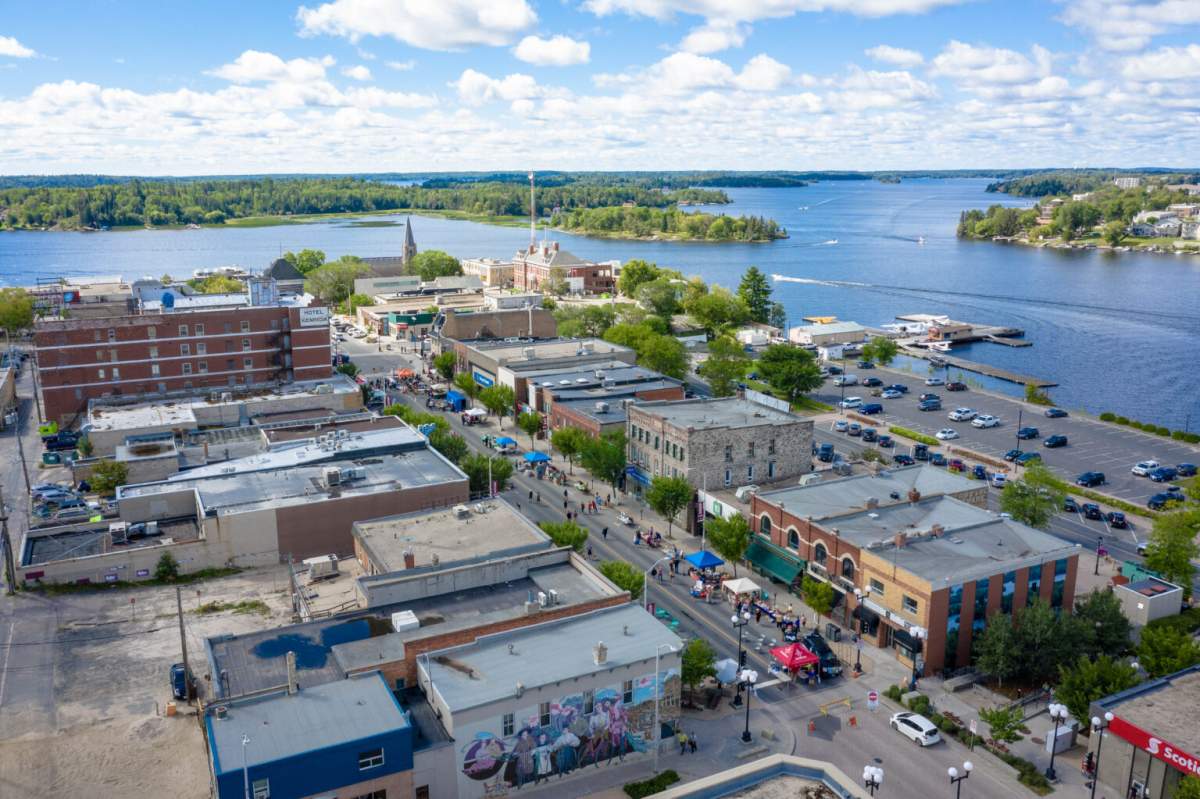The calm and goodwill many small cities enjoy over the holiday season was interrupted by a string of violence directed at businesses in Kenora, Ont., forcing city council to call an emergency meeting Thursday.

There have been at least four incidents this month where people have been charged with assaulting business owners or patrons in the downtown core.
“We are a community in crisis right now. I get that from talking to our business people and residents,” said Kenora Chamber of Commerce president Andy Scribilo.
The most recent incident happened at the height of Christmas shopping on Dec. 23. A 29-year-old man was arrested and charged with assault and mischief at a business on the 300 block of Second Street. Newly-elected Mayor Andrew Poirier and council hastily called the public meeting and promised action.
“We’re taking in all that information … but we’re doing our part also because we are part of the solution — the seven people around this (council) table here,” Poirier said before retiring to a closed-door meeting with council members and senior administrative staff.
The violence isn’t new but more brazen and frequent. A survey last February found 70 per cent of residents don’t feel safe downtown. Addictions, mental health and homelessness all play a role and existing community supports and police haven’t been able to stay on top of the problem.

Get daily National news
Business owners at the meeting detailed brazen thefts, break-ins and vandalism, people abusing washrooms and being violent to people shopping, working or doing business downtown. Many said they can’t keep staff because of the violence and face shuttering permanently.
“We are assaulted on a daily basis, threatened to be killed every day they come in belligerent and drunk, spit on staff steal from the store,” said Scott Cook, who owns a Little Caesars pizza in the core.
He said his plumbing is constantly clogged with needles and when people are denied use of the washroom they will urinate and defecate in the restaurant.
A local physician who works with many struggling with addition and mental health says while he understands the complex issues and wants to be part of solutions, he also fears taking his small children downtown to shop.
But on the flip side are people taking to social media to encourage vigilantism on ‘street people’ — 85 per cent of whom are Indigenous — even though only a small per cent are responsible for the violence.
“People were sending me screenshots of people in this community calling for the return of starlight tours,” said activist Tania Cameron, an Anishinaabekwe (Ojibway woman) living, working and raising a family in Kenora.
Starlight tours refer to an Indigenous person being rounded up at night, driven out of town and left — often to die. The term was coined by Saskatoon police who killed Neil Stonechild, a Saulteaux man, when he froze to death in 1990.
“I was horrified to read that and there was calls for vigilante justice and even this morning reading people saying they never go downtown unarmed… people are putting that call out,” Cameron said.
Advocates say the reality is those living on the streets are usually first on the receiving end of violence, before it spills into businesses.
Mary-Alice Smith with Kenora Moving Forward, an advocacy and support group that works street-level with the estimated 150 homeless in Kenora, fears her community is a powder keg as inflammatory language becomes ramps up.
“People talk about making Kenora great again and our question is great for who? It was never great here for Indigenous people here. Ever,” Smith said.
Craig Lavand, a member of nearby Wauzhushk Onigum First Nation (Rat Portage) used to live on the street battling addiction in Kenora. He understands tensions are high but takes issue with some making it a race issue.
“This town is built on drunken violence — you have plaques downtown that talk about the street brawls you had between police forces,” he said, referring to the 1880s when settler governments were fighting over whether Kenora would be part of Manitoba or Ontario as well as a lucrative illegal liquor trade.
The Ontario Provincial Police were present at Thursday’s emergency meeting but did not speak nor did they respond to Global News requests for statistics on the violence or plans to address it.







Comments
Comments closed.
Due to the sensitive and/or legal subject matter of some of the content on globalnews.ca, we reserve the ability to disable comments from time to time.
Please see our Commenting Policy for more.